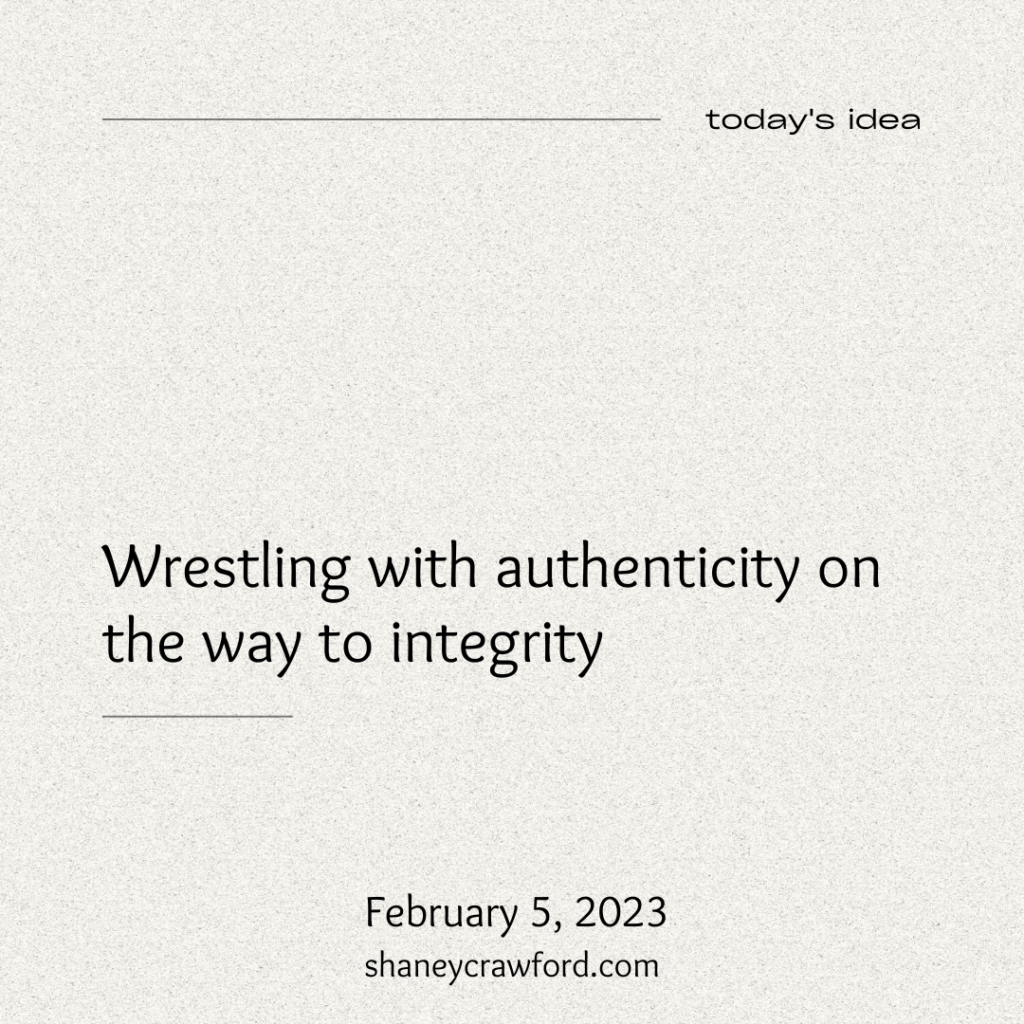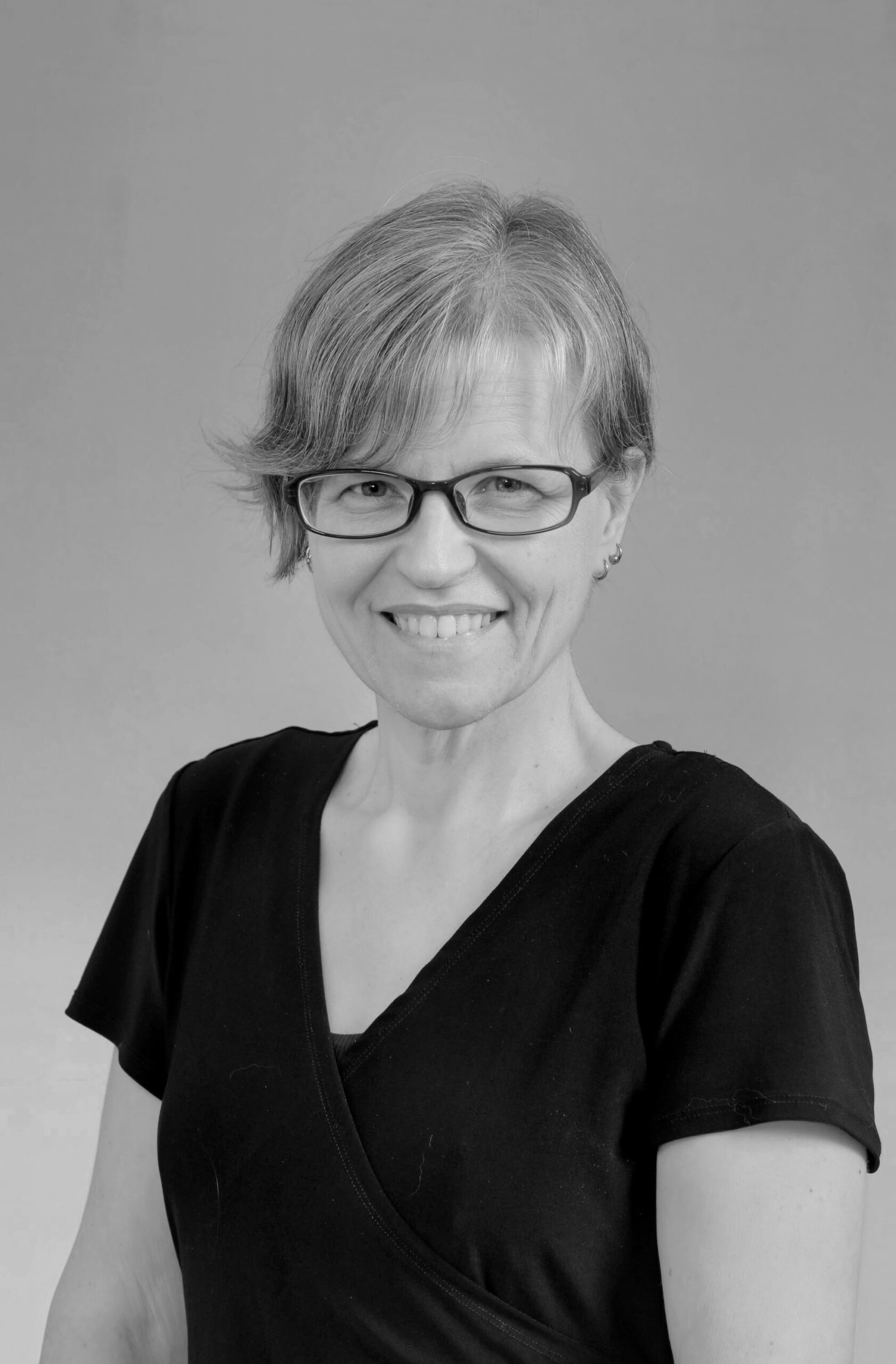I wrote previously about integrity, and how I think living with integrity is about having all of the parts of yourself in alignment, integrated with each other, and there being harmony in that wholeness. Today, I want to talk about how I have been wrestling with being authentic as I am moving towards living with integrity.
To me, being authentic means presenting yourself to the world as you are, and not trying to hide yourself, or any aspects of yourself, because you are ashamed, or feel not good enough. Easier said than done! Most people have something they don’t want out in the open. Many people, especially women, can feel like we are just getting away with something until the jig is eventually up, so we have to keep quiet so nobody finds us out.
I want to talk about this today because it came up in my conversation with my coach yesterday. I arrived at the appointment with no particular topic to discuss, and somehow we wandered into this territory. I started to talk about something that had bothered me in the past, and when we dug down into the roots of why this thing still bothered me, I realized that it had to do with feeling like an imposter. And I don’t mean “feeling like I have imposter syndrome”, but rather “being an actual imposter”.
Let me explain…
Despite the fact that I have been leading a school for almost twelve years now, I have been constantly worried about being exposed as a fraud because I did not come to this position in the way that most people do.
I graduated from university with a degree in Linguistics in 1995 and I was on track to get a (concurrent) Bachelor of Education in 1996. However, instead of completing the education degree, I decided to come to Japan and teach English at a junior high school in 1995, with the plan to go back to Canada to finish the degree one year later in 1996. I was able to defer the final year of my education degree for that one year while I was in Japan, but they wouldn’t let me defer it for a second year, so I decided to stay in Japan and quit the degree program. I was having way too much fun in Japan (where I was actually teaching) to want to go back to university to learn how to teach. I wasn’t sure at that point whether I did actually want to work in the field of education as a career, so I figured I would do the education degree later if I needed it.
This was all well and good until Mr. Kano, the former principal of my current school, asked me to work with him at the school in 2008. Although I had worked sort of “unofficially” as a teacher in various contexts by that time, I still didn’t have the teaching degree, so it felt a bit awkward to be working at a school. After working there for a while, I decided that I needed to get a teaching degree, but it took me a couple of years to save up the insane amount of money that degrees cost by this time. (Also, I should mention that because it had been such a long time since I did the original education courses at my first university, I had to start again from zero with the requisite introductory courses on education.) I started the degree in 2011 a few weeks before the massive earthquake, tsunami, and nuclear disaster in Japan. And the week after the triple disaster, Mr. Kano, the principal, died suddenly (not related to the disaster) and I became the new head of the school!
So, being in charge of a school was not in my career plan. It just kind of happened. And I am sure that many people who study and work for many years to get to that position must think that it is not fair. So I don’t mention this part of my story to people. Luckily, very few people ask about your qualifications for your job on a regular basis, so it rarely comes up, but when the topic has arisen in conversations in the past, I have tried to avoid giving too many details because I have been ashamed of it.
I managed to complete the teaching degree in 2015. It took me four years instead of the intended two because I was now a student who was also a head of a school (such a weird position to be in) — and the school was in a state of crisis — so I didn’t have as much time as I originally thought I would when I signed up for the program.
So, anyway, what I am saying is that I didn’t mean to become a head of a school, and I know that the way that I became the head of my school is not “quite right”. And I don’t like that. It is something that I have felt the need to hide. And hiding makes me feel inauthentic, not like an integrated whole.
When I talked to my coach about it yesterday, we decided that in order to get past this, I needed to own my story. I need to be okay with my life and the way that it played out. I can’t go back into the past to fix it and make it happen the way it “should have”. So my only option, if I want to feel authentic, is to own it and not try to hide it anymore.
So, my story is now out there for anyone to see. I became the head of a school without a teaching degree. I will no longer hide it or gloss over it. It is my story and I will own it. And I will even try to go beyond that to be proud of it.
The fact of the matter is that I became the head of a school under extraordinary circumstances, and I have done the best job that I could possibly do despite my lack of traditional qualifications. Under my watch, my school has grown from around 50 students in 2011 to around 300 today. We have added Grades 8, 9, 10, 11, and 12 since I took over the reins. We got authorized for the three programmes of the International Baccalaureate: the Primary Years Programme, the Middle Years Programme, and the Diploma Programme. And we gained accreditation for the whole school from the Council of International Schools. The school now has fifteen grades, from pre-kindergarten to Grade 12, and we have graduated four amazing cohorts of wonderful students and sent them off into the world. I have studied and worked hard over these past eleven years to make up for any shortcomings I came to the job with. And I work with incredible teachers and administrators who teach me new things every day, both about myself, and about the world of education.
My story is what it is, and my work speaks for itself. I don’t need to hide that part of me, or give any further credence to the voice in my head that says, “You’d better be careful not to let people know that you really are an imposter.” Shutting myself down like that makes me smaller and less open to engaging fully with the world around me. So, no more of that.
I choose to live an authentic life.



